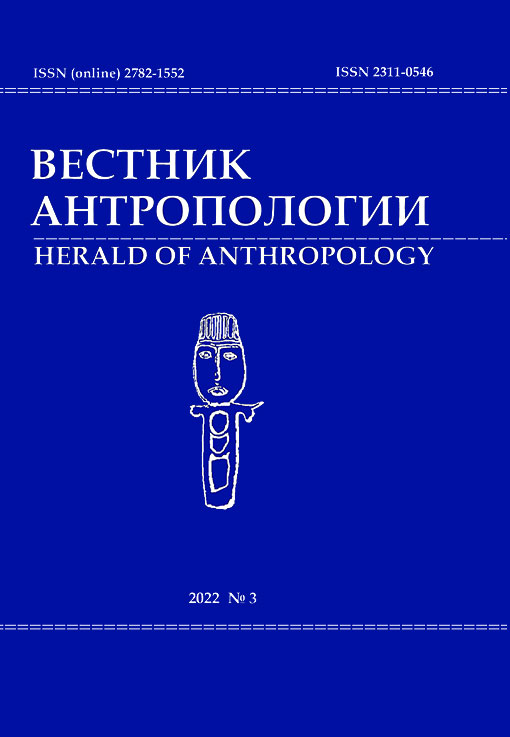Native Language and Ethnic Identity among Russian-Ukrainian Bi-ethnic Population in Russia
10.33876/2311-0546/2022-3/99-120
Keywords:
dual Russian-Ukrainian identity, ethnic identity, bi-ethnicity, bi-ethnic population, native language, Ukrainian language, Ukrainians in Russia, Surzhyk, polylingualismAbstract
The article discusses the identity of the Russian-Ukrainian bi-ethnic population in Russia and is based on field research, which employed both qualitative and quantitative methods in five regions of the Russian Federation with a traditionally high propor tion of Ukrainian population. The study aims to analyze the role of the “native” and the “used” language in the formation of ethnic feelings of the bi-ethnic respondents. They explain the Russian and the Ukrainian components of their identity in different ways: their Russian identity is, first of all, due to the country of residence, to a lesser extent by origin, native and used language. Ukrainian ethnic identity is mainly due to the origin (Ukrainian ancestors), and much less often to cultural practices, inner feelings. The language (native or used) is not mentioned by the majority as a factor in definingtheir ethnicity. Nevertheless, for residents of the “former” Ukrainian districts and people from them and Ukraine in large cities, the Ukrainian language or Surzhyk
(“Khokhlyatsky”), the presence of linguistic features is the main feature that distinguishes them from “purely” Russians. Accordingto the survey, the low percentage of those who choose the Ukrainian language as a reason to feel Ukrainian, even in places where most population is bi-ethnic, is explained by the widespread belief that their spoken Surzhyk differs greatly from Ukrainian, which is a great exaggeration. The alleged ignorance of the correct Ukrainian language in the self-consciousness of the bi-ethnic people prevents them from fully identifying themselves as Ukrainians, which is why they more willingly call themselves “Khokhly”. This situation is due to the fact that many generations of Ukrainians did not study their native language at school, and career and social progress are only possible with the transition to the Russian language.





















